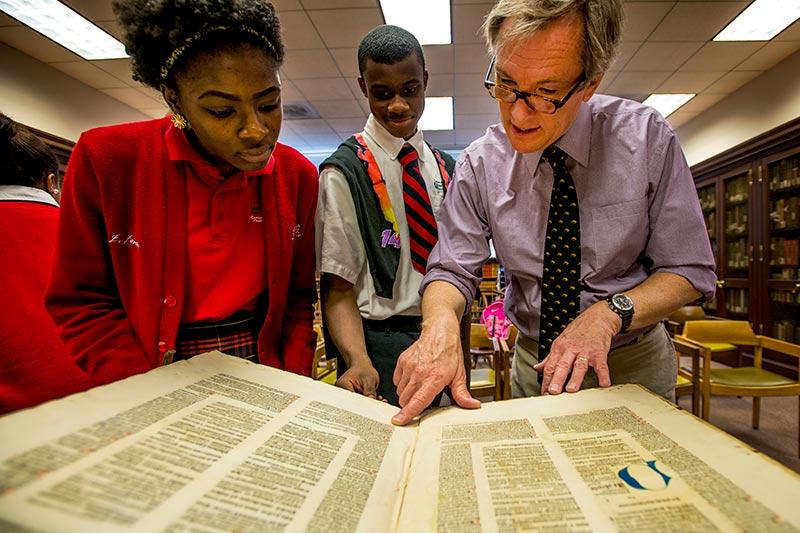Students connect to past through archives
University archives can act as invaluable, tangible portals to the past. For three years, Tulane undergraduates have introduced local high school students to the university’s vast array of historical treasures through the Archives and Outreach Program.
The unique mentorship initiative was created by Michael Kuczynski, chair of the English department in the Tulane University School of Liberal Arts.
Kuczynski was inspired to start the outreach effort after attending a talk by Michael Meredith, former librarian of Eton College in the U.K., at the Newberry Library in Chicago.
“He explained that it’s wonderful for an educational institution to curate rare materials, but they’re nothing more than a collection if they’re not shared with the general public,” said Kuczynski.
As Meredith discussed welcoming high school students from London into the archives of the Eton College library, Kuczynski considered how a similar program could impact local students.
“These materials are sometimes imagined to be accessible only to professional scholars with years of training. I became interested in ways to encourage the local community to appreciate the archival richness of what we have here at Tulane,” said Kuczynski.
Facilitated by a grant from Tulane’s Center for Public Service, Kuczynski began a partnership with Lake Area New Tech Early College High School.
Throughout the program, second- and third-year Tulane undergraduates discussed materials within the high school classroom and then guided the younger scholars in handling original works housed within the Hogan Jazz Archive, Newcomb Archives and Vorhoff Library Special Collections and Tulane Special Collections, where students learned to handle medieval manuscripts and early printed books.
The Lake Area students also examined autographed correspondence from prominent Harlem Renaissance poets Langston Hughes and Countee Cullen at the Amistad Research Center. The documents contained a draft of Hughes’ poem “Dreams.”
The students compared the draft with the published version of “Dreams” featured in an anthology used in their classroom, said Kuczynski.
“It’s a way of connecting with history that the students didn’t have before,” said Kuczynski.

